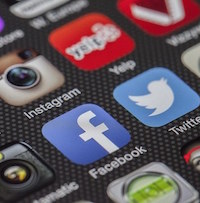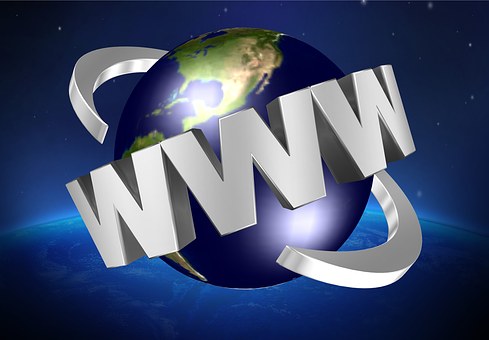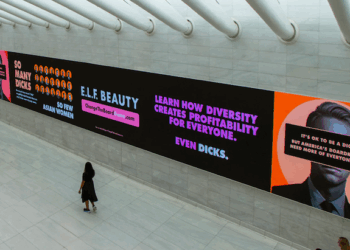Our Friday World of Media column wraps the week’s most interesting, informative, weird or wonderful media stories from around the world. Your weekend catch-up.
World’s biggest advertising business takes a hit

The impact of long-term technological disruption and the short-term focus of zero-based budgeters, activist investors and private equity was behind WPP’s $2.6 billion drop in its market capitalisation, chief executive Sir Martin Sorrell said on Thursday. Sorrell disputed claims the fall was due to Google and Facebook, and digital competition from consultants.
WPP’s shares were down almost 13% as news of its flat results spread. In an interview with CNBC’s Squawk Box, Sorrell said 2017 was a difficult year.
The world’s biggest advertising agency had to simplify how it operates, and be faster, better and cheaper than its rivals. Sorrell said the FMCG market, which comprise a third of WPP’s clients, has seen “pressure on pricing in a low inflationary environment and volumes being under pressure too”.
Read the full story on CNBC.
Manchester United finally officially joins YouTube
 Arguably the most popular soccer club in the world, Manchester United has finally joined other brands who have a presence on YouTube.
Arguably the most popular soccer club in the world, Manchester United has finally joined other brands who have a presence on YouTube.
Despite being the most viewed English Premier League soccer club on the video hosting and sharing site, having racked up 843 million views since the start of the current season, the club never had an official channel.
The club already has a strong digital presence, growing the brand through other social media platforms such as Facebook, Twitter and Instagram, but this move bolsters its engagement with online audiences.
Even though the club only officially launched the channel at the end of February 2018, it has been live since 19 December 2017. Since then it already has over 500,ooo subscribers, with 111 videos posted and over 14 million views in total. The very first videos that were a posted to the channel featured Ashley Young’s goal against Watford from all angles, and a top ten list of free kicks by United players.
To read the full story, first published by WARC, click here.
Nielsen on why brands should harness the power of Black Twitter

Investment by multinational conglomerates in research and development to develop products and marketing that appeals to diverse consumers is paying off.
Cheryl Grace, senior vice president of US strategic community alliances and consumer engagement at Nielsen, said research showed black consumer choices have a ‘”cool factor’ that has created a halo effect, influencing not just consumers of colour but the mainstream as well”.
Grace’s comments came off the back of research that showed black consumers and consumers of colour were making considerable contributions to the overall market—in some cases representing more than 50% of the overall spending in key product categories.
Nielsen reported that black consumers were “speaking directly to brands in unprecedented ways and achieving headline-making results” via the power of “black Twitter” and the “brand impact of socially conscious black consumers”. Nielsen said that through social media, Black consumers had “brokered a seat at the table and are demanding that brands and marketers speak to them in ways that resonate culturally and experientially—if these brands want their business. And with African Americans spending $1.2 trillion annually, brands have a lot to lose”.
Read all the insights on the Nielsen news site.
No second inquiry into UK media wrongdoing
 The British government has decided not to continue with a second investigation into media companies accused of wrongdoing.
The British government has decided not to continue with a second investigation into media companies accused of wrongdoing.
Five years ago, the government held a year-long inquiry after allegations emerged that Rupert Murdoch’s News of the World tabloid had phone hacked calls and voice mails of celebrities, while investigating stories about them.
Even though Murdoch shut the paper down, and compensation was paid to the victims, the government said that a second phase of the inquiry would occur, to ascertain the full extent of media misconduct and wrongdoing.
The reason given by the government for the termination of the inquiry, are the costs involved and the time it takes, which Culture Secretary Matt Hancock describes as “not the right way forward”.
You can read the full story, first published by abcNEWS here.
The story of Johnnie and Jane Walker
 Meet Jane Walker, the female iteration of Johnnie Walker’s iconic Striding Man logo. Jane is making her debut on a limited edition bottle of Johnnie Walker Black Label this month.
Meet Jane Walker, the female iteration of Johnnie Walker’s iconic Striding Man logo. Jane is making her debut on a limited edition bottle of Johnnie Walker Black Label this month.
Stephanie Jacoby, vice president of Johnnie Walker, said in statement that important conversations about gender continue to be at the forefront of culture and “we strongly believe there is no better time than now to introduce our Jane Walker icon and contribute to pioneering organizations that share our mission”.
Jacoby said Johnnie Walker was proud to toast the many achievements of women and everyone on the journey towards progress in gender equality. And to support their message, one dollar of every bottle of the Jane Walker will be given to “organisations championing women’s causes”.
For more, visit Fortune here.
Much of the same for social media in 2018, but with a few changes
 New research from the Pew Research Center in the US, designed to predict trends in social media usage for 2018, has revealed that long-standing trends will continue to dominate, but a few new narratives are emerging.
New research from the Pew Research Center in the US, designed to predict trends in social media usage for 2018, has revealed that long-standing trends will continue to dominate, but a few new narratives are emerging.
Facebook and YouTube continue to dominate with most adults in the US utilising both, but an emergence of popularity in Snapchat, Instagram and Twitter is also being seen, particularly amongst younger users.
However, these insights are unsurprising, with many techies predicting these usage patterns, before this research came out.
The full story, which is full of interesting insights and was first published by the Pew Research Center on its website, can be found here.














